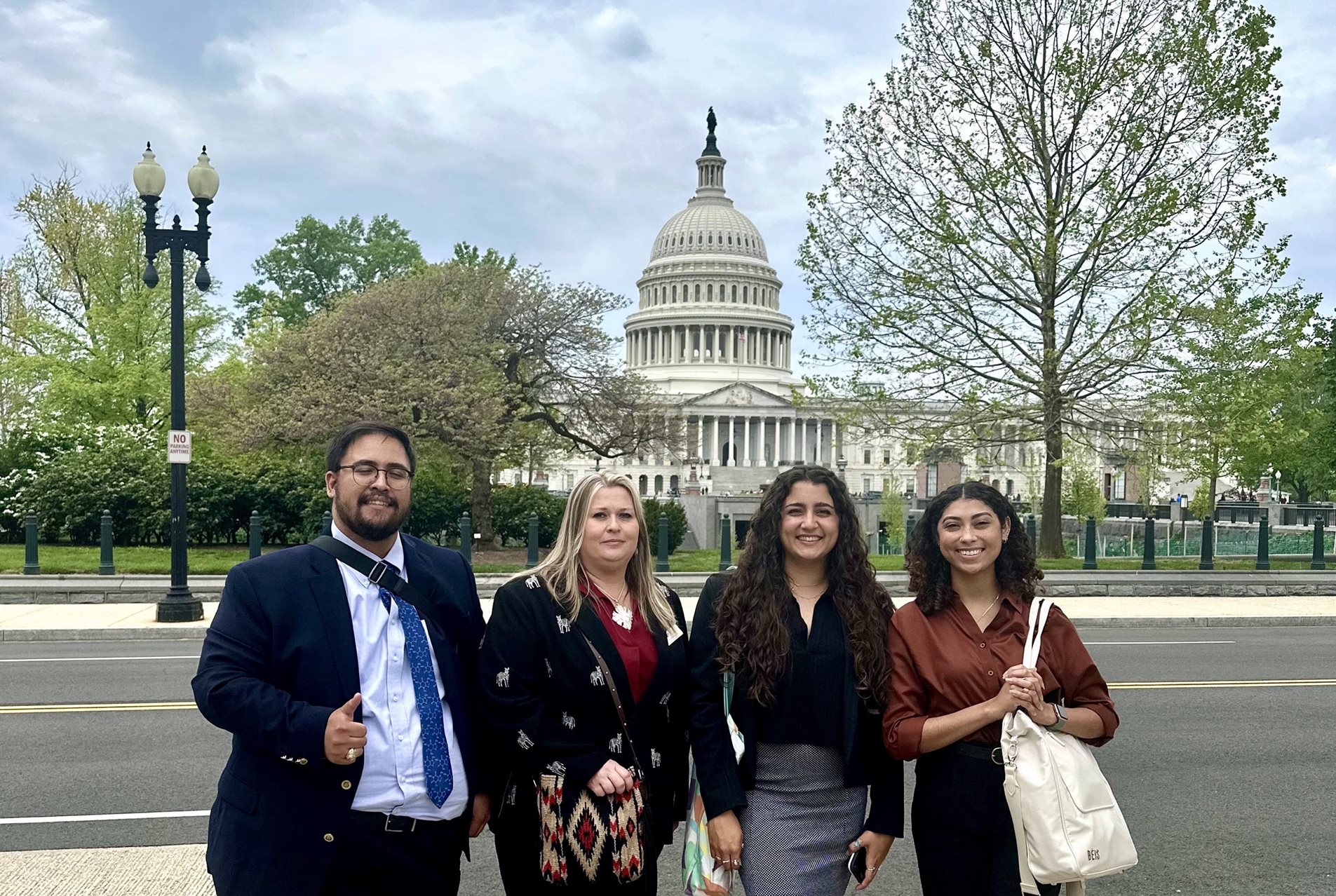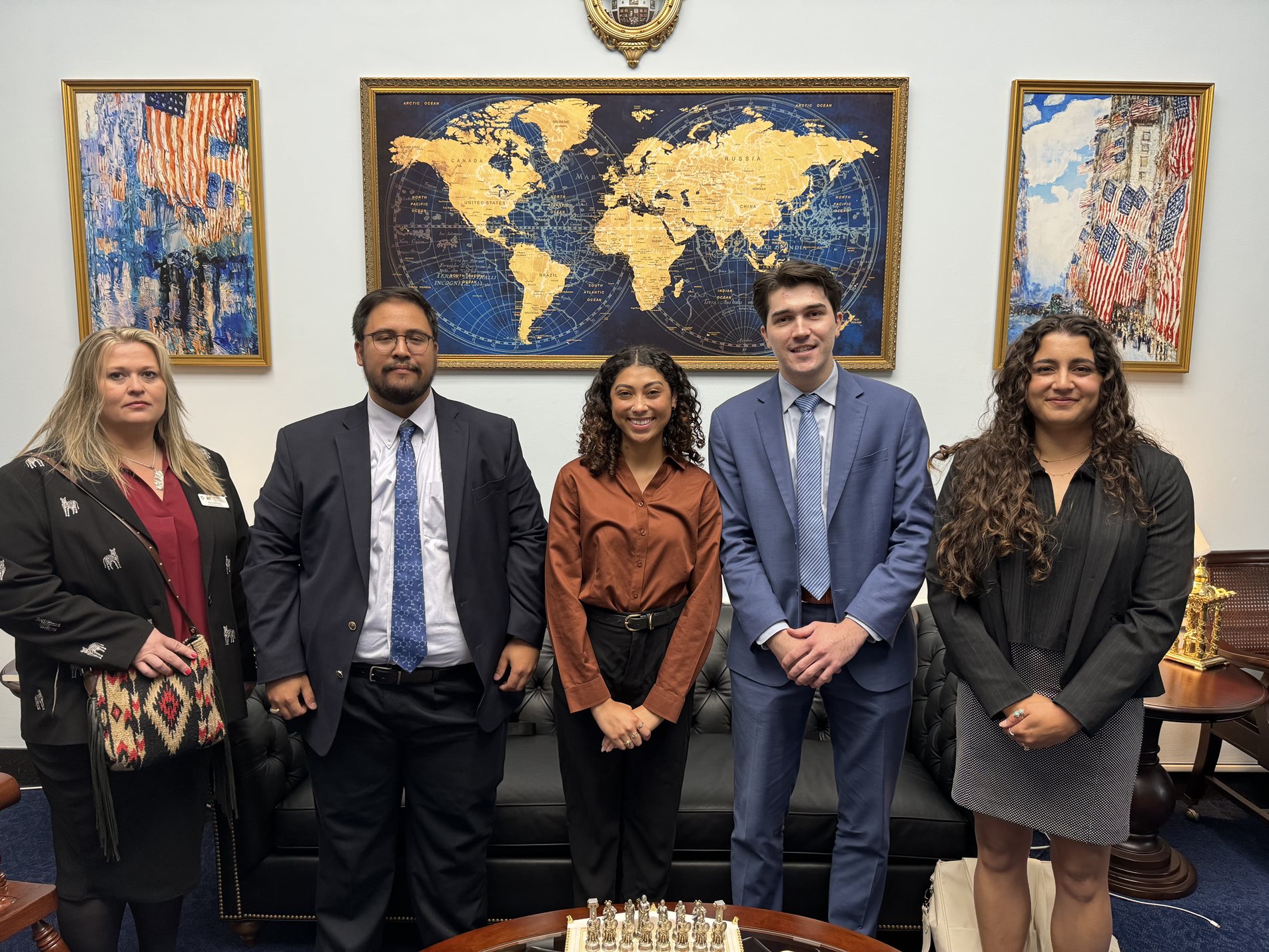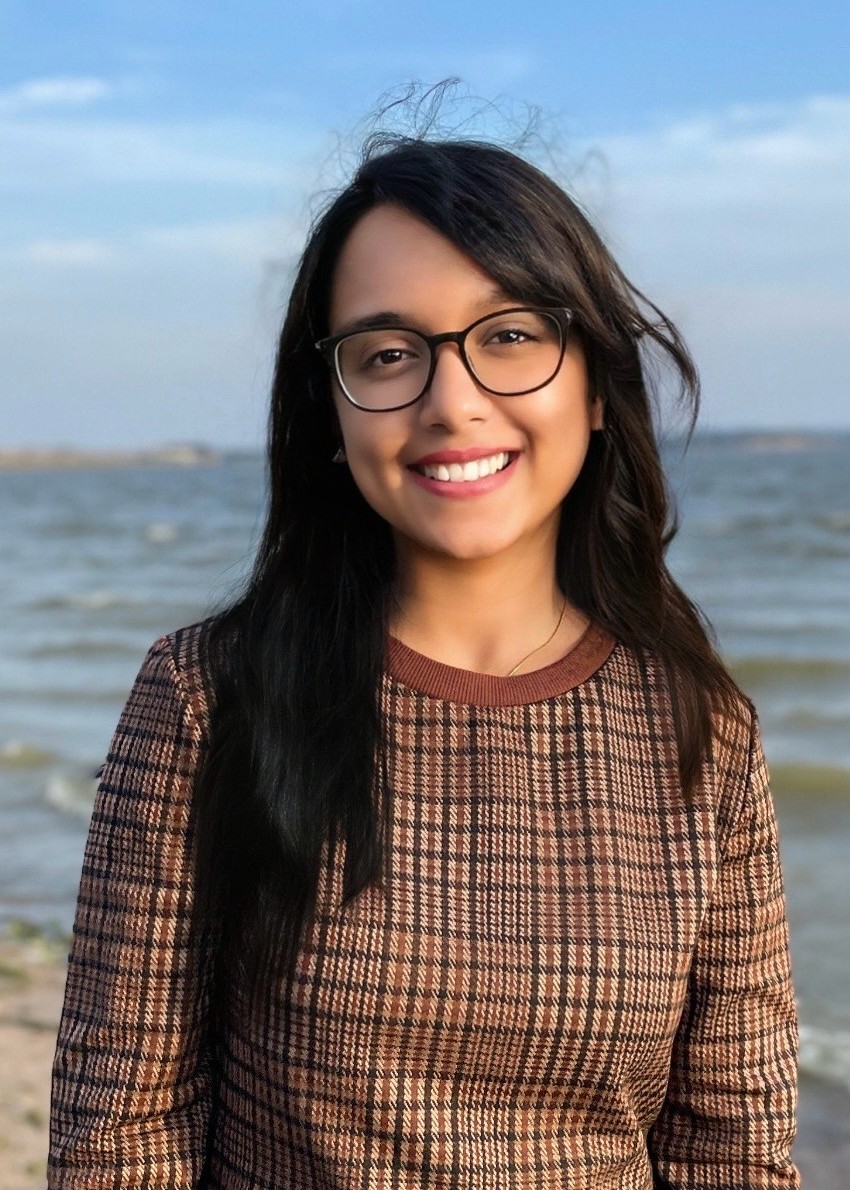News

Texas A&M Graduate Students Attend Science and Public Policy Workshop in Washington, DC.
The annual Catalyzing Advocacy in Science and Engineering (CASE) workshop aims to equip students in higher education with the know-how to shape policy for the public good.
By Kahkasha Wahab, Texas A&M University Graduate and Professional School
Four Texas A&M doctoral students traveled to the nation’s capital for the Catalyzing Advocacy in Science and Engineering (CASE) professional development workshop on science and public policy. Serina DeSalvio (Genetics & Genomics), Dallas Freitas (Chemistry), Alaya Keane (Ecology & Conservation Biology) and Molly McClurg (Biomedical Sciences) attended the annually-held event, hosted by the American Association for the Advancement of Science, from April 14-17.
DeSalvio, Freitas, Keane and McClurg were selected by the Graduate and Professional School after an application and review process. The Grad School also covered their travel expenses.
“We are happy to provide this outstanding professional development opportunity for our students,” said Dr. Fuhui Tong, Interim Associate Provost and Dean of the Graduate and Professional School. “The CASE workshop not only prepares doctoral students for professional success; it also helps ensure that scientific expertise plays a role in determining public policy. As the experts and leaders of tomorrow, we believe their voices should be heard at the highest levels.”
The group got essentially a crash course in federal policy-making and how to use their voices and expertise as scientists to have an influence in government. “The CASE workshop is a first step in preparing me to navigate the intricacies of scientific research and government regulations, as well as to influence policy,” said McClurg. “Now I’m better equipped to advocate for fair and accessible research conditions in both domestic and foreign governments.”
The CASE Workshop was a gathering of both U.S. and international students. The agenda included an array of sessions and activities designed to immerse participants in the world of science policy and advocacy. Experts in different fields described processes and procedures surrounding science policy, mechanisms of federal science funding, the necessity of advocacy in maximizing the impact of scientific research, and the importance of communications in advocacy and in building and maintain public trust.
Knowledge about how science and policy intertwine is important for every scientist, regardless of the diverse paths they may take, Freitas explained. “In academia, you have to understand how policies impact research and funding, as well as how to effectively advocate for science funding and pro-science policies in the public sector. In industry, it’s important to grasp the mechanisms through which policies are formulated or revised and how those will affect production guidelines and capabilities. And in government, knowing how to maneuver the bureaucratic intricacies is essential if you want to make an impact,” Freitas said.
Networking was also a key part of the workshop, with so many promising young scientists from around the world getting the chance to meet. “My experience at CASE enabled me to envision collaborating with colleagues in the U.S. and beyond to foster an environment where scientists play a pivotal role in shaping policy decisions and where research transcends borders,” McClurg said.
Keane agreed. “To achieve science goals, you need the cooperation of multiple stakeholders including communities, scientists and policy-makers,” she said. “CASE prepared us to be able to create more robust approaches to achieving our goals. It definitely helped me build on my current skill set.”

At the close of the workshop, the students got to meet with legislative staffers and put what they learned into practice. “We were able to take the knowledge gained through the workshop on the federal budget and inner workings of science policy to the offices of various Texas representatives,” Keane said. We visited with staff members from the offices of Congressman Moran, Congressman Castro, Congressman McCaul, Congresswoman De La Cruz and Senator Cornyn. These meetings gave me confidence that I can effectively communicate with individuals involved in policy-making at a national level.”
DeSalvio, Freitas, Keane and McClurg were selected by the Graduate and Professional School after an application and review process. The Grad School also covered their travel expenses.
For more information about the CASE Workshop, visit [AAAS CASE] (https://www.aaas.org/programs/catalyzing-advocacy-in-science-and-engineering).
***
Media Contact: Rob Dixon (rdixon@tamu.edu)
